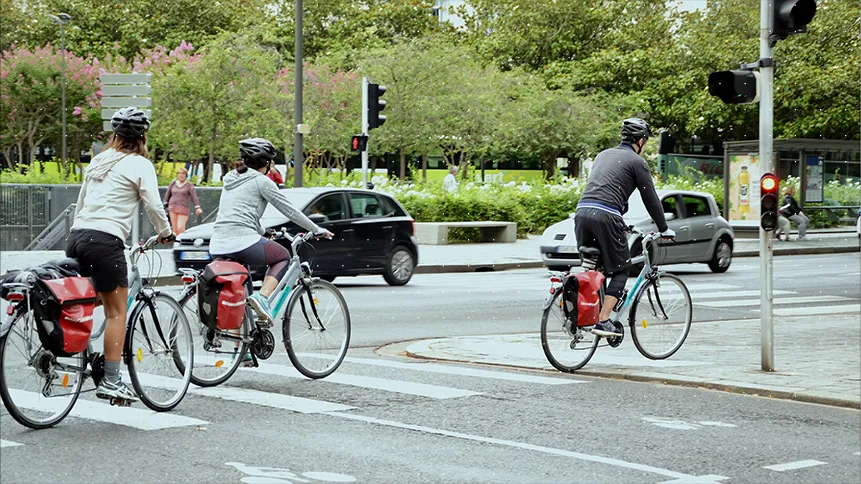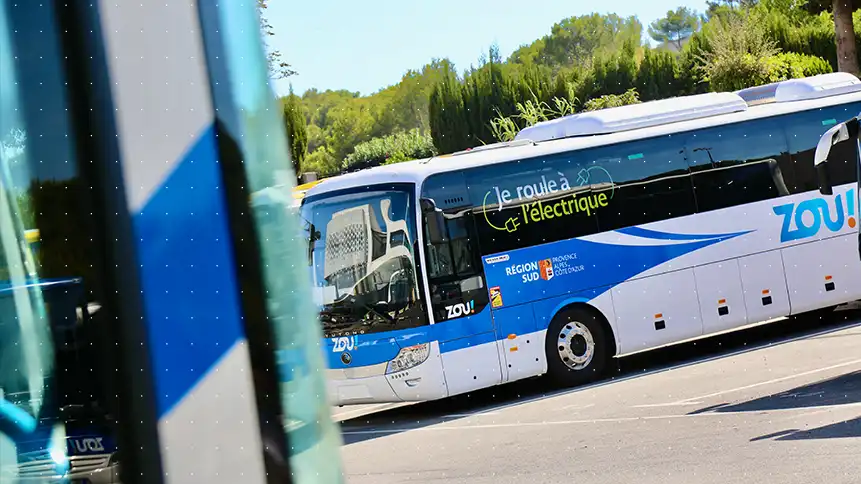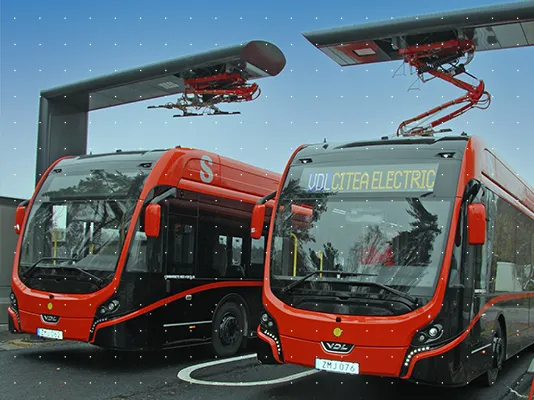As a world leader in shared mobility, Keolis is firmly committed to reducing the environmental footprint of transport. Public transport solutions are a first step towards meeting the challenges of climate change, land use, air and noise pollution, etc. But Keolis has even higher ambitions, on a par with the challenges facing the environment. The Group’s goal is to become a leader in low-carbon mobility by building public transport networks that protect the environment and the health of local residents.
Deploying sustainable mobility solutions in communities
Shared mobility in support of the environment
Keolis operates 13 modes of transport, including metros, trams, trains and buses. These low-carbon shared mobility solutions enable millions of people to travel without a car, while limiting their greenhouse gas emissions and their impact on air quality.
Encouraging multimodality and active mobility
Keolis has always been at the forefront of developments in the transport sector. It has the expertise and references to support public transport authorities in decarbonising their transport systems and working with them to develop cleaner mobility. Working with PTAs, Keolis designs tailor-made transport networks combining multimodality, public transport, shared and soft mobility. Keolis always tries to find the transport solution that is best suited to local issues and has the least impact on the environment.

Supporting the environmental conversion of transport networks
Advising clients on local energy strategies
The Group offers the best suited mobility solutions in terms of energy, vehicles and infrastructure, taking into account local issues, regulations and the technical and economic feasibility of the solution. Throughout the operating contract, the Group helps its partners to learn about and adopt new technologies for ever greener public transport.
Accelerating the decarbonisation of vehicle fleets
With its extensive knowledge of diesel alternatives, Keolis advises PTAs on the fuel conversion of their vehicle fleets. The aim is to replace diesel and petrol with low-carbon energy carriers such as biodiesel, bioethanol, electricity or hydrogen.
Hydrogen: a solution with promise?
In partnership with public transport authorities, Keolis is exploring 100% hydrogen-powered buses for lower carbon and less polluting mobility.
In the United States, Keolis and its partner International Pomona operate two bus lines and 33 vehicles powered by hydrogen fuel cells on the Foothill network in Southern California.
In France, the Group began operating 14 hydrogen-powered vehicles in September 2024 on a major line of the Clermont Auvergne Métropole public transport network. With this trial, Keolis and its partners are investing together to develop skills in this high-potential sector. The expected benefits include improved air quality, reduced noise pollution and a more pleasant travel experience.
Energy mix of Keolis Group fleets
- 34 % of kilometres using non-fossil fuels, +4 pts vs 2023
- 25 %of kilometres using non-fossil fuels for road vehicles, +5 pts vs 2023
- + 2 %electric buses year-on-year, amounting to nearly 2,000 buses at end 2024
- 1 %reduction in greenhouse gas emissions vs 2023
Training in eco-friendly driving
Eco-driving can reduce fuel consumption by up to 5%. In practice, this means keeping RPMs as low as possible, maintaining a stable speed and refraining from sharp accelerating and braking. Keolis trains its bus and coach drivers in this type of "economical" driving and in eco-friendly reflexes, notably through simulator sessions run by the Keolis Training Institute.

Let’s Talk podcast
Bruno Lapeyrie, Director, Bus and Energy Centre of Excellence
